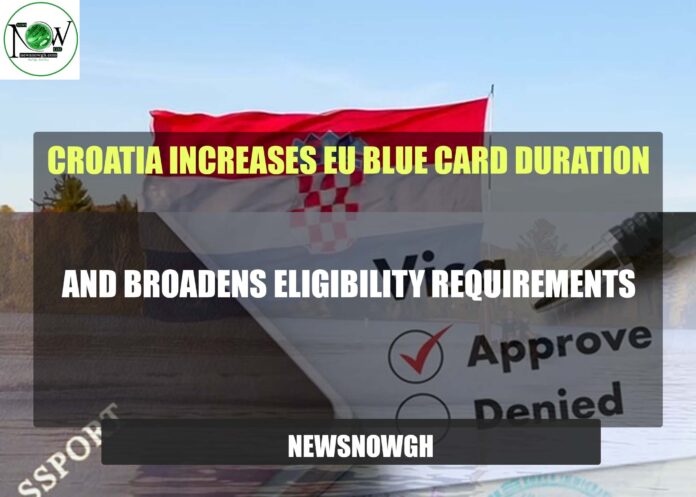Croatia Increases EU Blue Card Duration and Broadens Eligibility Requirements
Croatia is set to extend the EU Blue Card’s validity from two to four years and increase qualifying standards to include talented IT professionals without formal schooling. These improvements aim to attract highly qualified foreign workers and address labor shortages in important sectors.
To draw in more highly skilled international labor, Croatia is implementing major modifications to its EU Blue Card program. The EU Blue Card’s two-year validity will be doubled to four years, according to plans disclosed by the Croatian government. This modification is part of a larger overhaul of the nation’s Aliens Act, which is presently being examined.
Extended Residency for Highly Skilled Personnel
Once the reforms are approved, international workers possessing an EU Blue Card can stay in Croatia for up to four years, a major increase from the present two-year maximum. More stability will be available with this extension for qualified workers looking for long-term work in Croatia. It is anticipated that this action will alleviate labor shortages and improve prospects for international employees.
Prime Minister Andrej Plenković stressed that this extension would assist Croatia handle its labor deficit and create a more inviting atmosphere for highly trained individuals. Furthermore, Minister of Foreign Affairs Davor Božinović stated that the main objective of this initiative is to draw in highly qualified laborers to Croatia.
Increased Qualifications for IT Experts
Apart from prolonging the validity of the EU Blue Card, Croatia intends to expand the qualifying standards, specifically for IT specialists. The EU Blue Card will now be available to anyone with suitable abilities and work experience who does not hold a formal education in the IT field.
They will, however, have to present documentation of their professional experience, which will be evaluated by a special committee. This action is a component of Croatia’s plan to draw talent to important sectors like IT, where real-world experience frequently counts for more than academic credentials.
Growing Amount of Work Permits Granted
In total, foreign nationals were granted 158,837 residence and work permits by Croatia between January and September of 2024. Workers from Nepal, Serbia, and Bosnia and Herzegovina received the most permits; these workers were mostly engaged in the trade, tourist, and construction industries.
Conditions to Get Croatia’s EU Blue Card
Those who wish to apply for Croatia’s EU Blue Card must fulfill the following requirements:
- Legitimate Employment Contract: Applicants must have a legitimate employment contract in place for at least a year to be eligible for Croatia’s EU Blue Card. The position must be in a highly skilled field that can fill the needs of the labor market in the nation.
- Minimum Salary Requirement: Candidates must earn at least 1.5 times the average Croatian yearly salary to pass the minimum salary requirement. At the moment, this works out to a minimum annual wage of €24,845.64.
- Professional and Educational Requirements: Candidates must demonstrate an appropriate educational background to be considered for unregulated professions. Regulated professions, on the other hand, have to adhere to Croatian legislative standards, guaranteeing that applicants hold the necessary licenses to practice.
- Financial Resources: Applicants must demonstrate that they have enough money to support themselves while in Croatia in addition to achieving the pay requirements. This guarantees that they won’t rely on tax dollars.
Fees and Processing Times
The processing time for Croatia’s EU Blue Card normally ranges between 30 and 60 days. Applicants must pay an initial application fee of €74.32, which includes the cost of processing of Blue Card.
Overview: EU Blue Card
Highly qualified non-EU nationals can live and work in EU member states with the EU Blue Card residence authorization. Its goal is to draw in highly qualified individuals to cover labor shortages in important industries. The Blue Card has many advantages, such as quicker access to permanent residency and the capacity to travel between EU nations under specific circumstances.
Final Thoughts
EU Blue Cards are provided by several EU nations, including Germany, France, and Italy; some have loosened their regulations to facilitate the application procedure for international employees. Croatia has been able to maintain its competitiveness in luring world-class talent due to its recent changes, which are in line with this trend.
Follow us on Newsnowgh.com to stay updated on the latest information regarding work permits, visa application processes, paths to permanent residency, and visa-sponsored employment.


